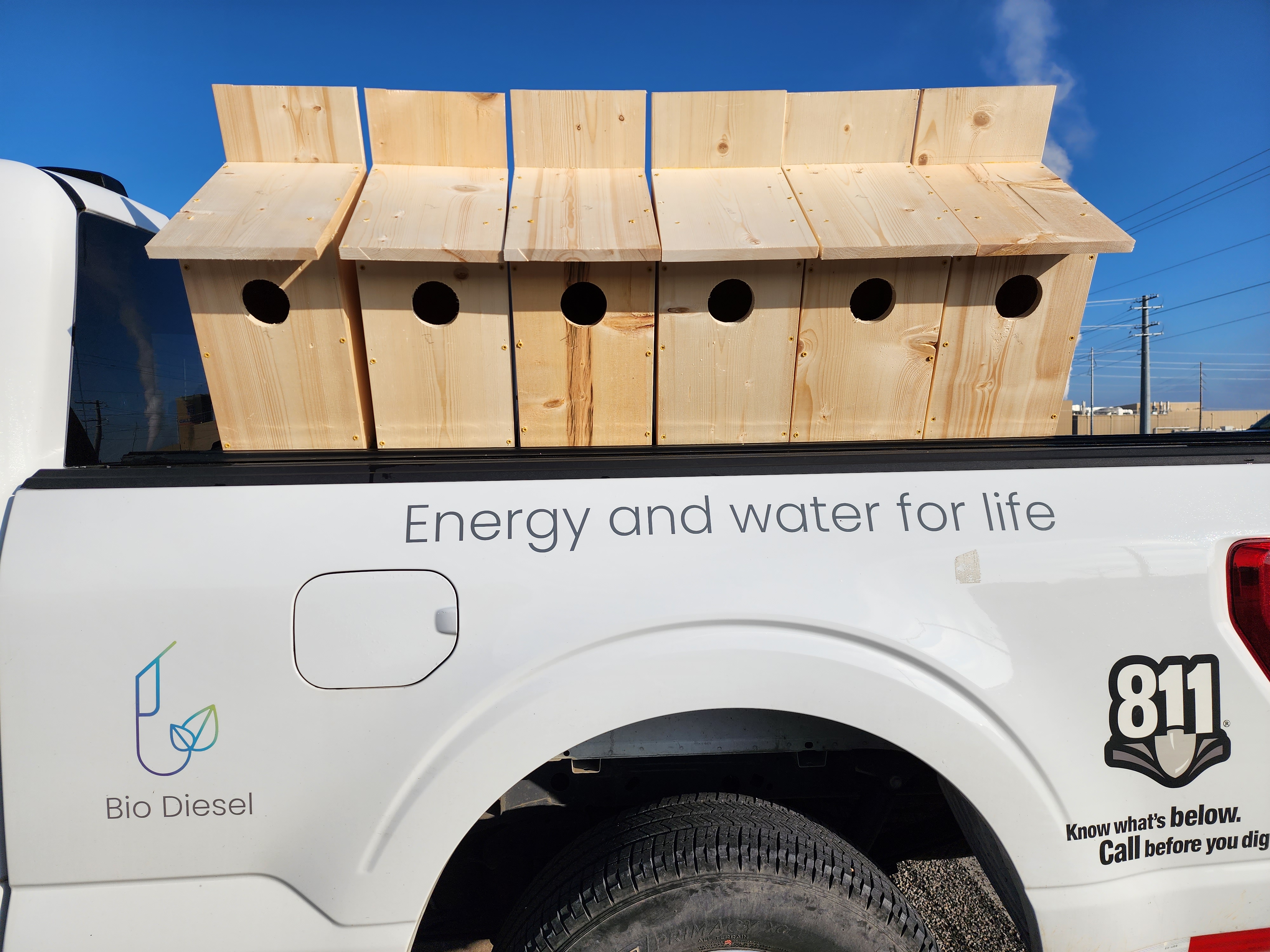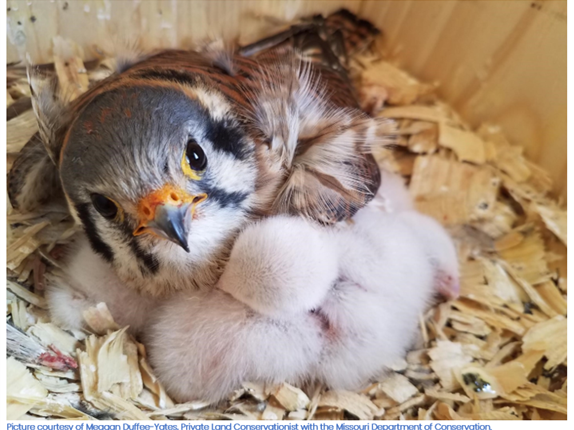Birds of a feather flock together, goes the old saying. Unfortunately, that includes flocking to electric substations and occasionally causing significant outages.
“Wildlife is a significant driver for interruptions,” says Josh Clements, Liberty’s Central Region Manager of System Reliability. “Starlings come in as a group and land on and get into anything they possibly can. When they knock out a substation, it can impact 500 to 5,000 customers at a time, depending on the substation.”
A recent discussion about inexpensive ways to deter birds from wanting to nest in and around Liberty substations led to Clements and Jason Grossman, Manager of Vegetation Management, using their woodworking skills to build six nesting boxes for the American kestrel.
Kestrels are the only falcon or hawk in North America to nest in cavities, according to the Missouri Department of Conservation. The species is Blue-Listed by the National Audubon Society – a warning that they are undergoing population or range reductions. Their numbers are in decline for several reasons, including habitat loss and pesticide/rodenticide use. Nesting boxes are a way to help provide a boost to the population.
“We were contacted by the conservation department two years ago to ask if they could hang kestrel nesting boxes at some of our substations in the Central Region,” says Grossman. “A light went on as we talked about it … kestrels deter starlings.”
Clements and Grossman spent a day building the boxes – five of which will be placed at substations in Missouri and Kansas, with the sixth held in reserve should it be needed.


“The boxes are supposed to be placed between 10 and 30 feet high,” says Grossman. “We’re going with 10 feet for ease of access and safety.”
The kestrels nesting in the boxes should provide a deterrent to flocks of starlings or other small animals taking up residence at substations. The boxes will be checked regularly to ensure they are being used by kestrels and not by other feathered squatters.
It’s one of those all-natural solutions, if you will,” says Clements. “Any time Liberty can put into practice something that benefits our customers and nature, it’s a win-win.”
